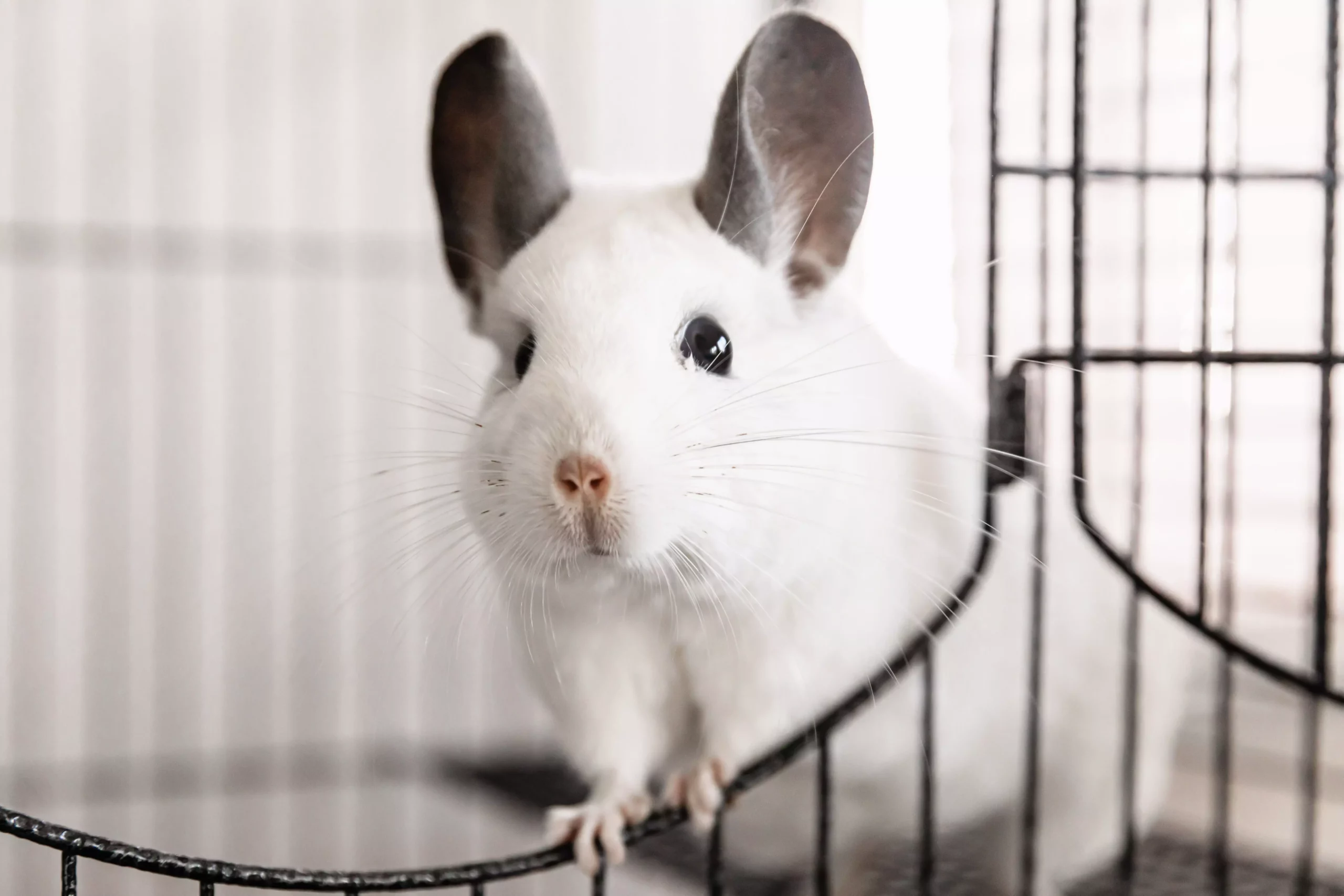Chinchillas are fascinating, small rodents originally found in the rugged, dry terrains of South America. As pets, they stand out due to their lively nature and inquisitive personalities. These creatures, recognized scientifically as Chinchilla lanigera, display a remarkable ability to bond with their owners when they are handled gently from a young age. However, it is critical to approach them with an understanding of their unique behavioral traits; unlike dogs or cats, chinchillas generally do not enjoy being held or cuddled. Instead, they show affection through playful interactions or curiosity about their surroundings.
Living Arrangements: Creating a Safe Habitat
Housing is vital for chinchillas, who require specific conditions to thrive. Their ideal habitat must be spacious and stimulating. A minimum cage size of 4 feet by 4 feet by 3 feet is recommended, with added levels for climbing and exploring. Wire cages help facilitate ventilation while solid-floored bases provide comfort for their delicate feet. The enclosure should include an exercise wheel and various chew toys to keep them engaged and to support their dental health, as chinchillas’ teeth grow continuously. Daily maintenance is crucial—remove soiled bedding and routinely check for any signs of wear in their habitat to ensure a safe and clean living environment.
Diet: The Key to a Healthy Chinchilla
Chinchillas are strict herbivores with specific dietary needs centered on high-fiber grass hay, such as timothy hay, which they should have access to at all times. Alongside the hay, commercial chinchilla pellets provide additional nutrients. It is important to monitor the quantity provided, as it can vary based on their size and level of activity. Occasionally, fresh fruits and vegetables can serve as treats, but it is essential to verify the safety and appropriateness of these items with a veterinarian to avoid gastrointestinal issues.
Moreover, water availability is crucial, and while a water bottle can facilitate cleanliness, a bowl should also be provided to ensure they are adequately hydrated. Regular dietary assessments with a veterinarian will foster a long and healthy life for your chinchilla.
Temperament and Socialization: Building Trust
Understanding a chinchilla’s temperament is paramount to successful interactions. Generally nocturnal, chinchillas tend to be more active during the night or at dawn and dusk. Owners should therefore allow their pets to acclimatize to their presence during these hours. Building trust is a process that requires patience—sudden movements can startle them, so always approach gradually. Offering a favorite treat can help encourage your chinchilla to come to you, and gentle petting can pave the way for more hands-on handling.
These delightful creatures thrive on social interaction and can generally live in pairs—either same-sex pairs or littermates introduced at a young age. However, it is essential to keep them isolated from other household pets to minimize any stress or potential harm.
Physical activity is crucial for chinchillas to remain healthy and engaged. While an exercise wheel can provide them with an outlet to burn off excess energy, out-of-cage time under supervision fosters mental stimulation and exploration. Create a safe area for them to roam, ensuring that it is free from any potential hazards such as electrical cords or small objects they could ingest.
Interestingly, although many small pets benefit from a plastic exercise ball, this method poses a serious overheating risk for chinchillas and should be avoided. Instead, creating exploration zones or playtime environments provides a more enjoyable and safe experience for your furry friend.
Chinchillas are generally quiet animals but can be susceptible to specific health issues, such as respiratory infections, digestive problems, and dental concerns. Regular check-ups with a veterinarian who specializes in exotic pets are recommended to monitor their health. Should your chinchilla display signs of illness, such as changes in behavior or appetite, it’s imperative to seek prompt veterinary attention.
Additionally, maintaining optimal environmental conditions is essential; temperatures should be kept between 65°F and 80°F to prevent heat stroke, especially since chinchillas’ luxurious fur can easily lead to overheating.
Owning a chinchilla can be a rewarding experience filled with unique challenges. Their playful nature and charming personalities can be captivating, but they require a dedicated owner willing to invest time and effort into their care and socialization. If you’re considering adding a chinchilla to your family, be sure to research reputable breeders or rescue groups to find a healthy companion. With the right knowledge and commitment, chinchillas can become delightful additions to any household, bringing joy and companionship for years to come.


Leave a Reply